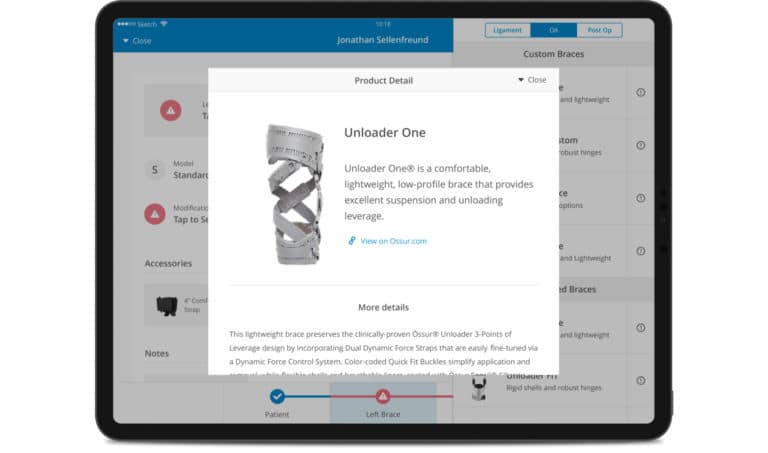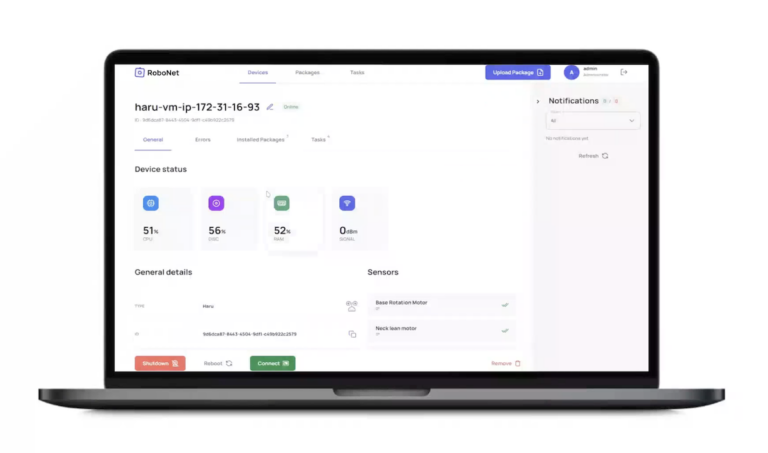How Today’s Entrepreneurs Build Innovative Startups
We at Relevant continue our series of inspiring stories of building startups. Founders and startup leaders often have unique insights to offer – what drives them, how they got started, their decision-making process, and how they overcome challenges, which has the potential to inspire a new generation of entrepreneurs to take action.
If you believe progress is the secret to success, let’s read these instructive stories, learn from them, and turn your business ideas into reality.
200+ companies from 25 countries outsourced software development to Relevant
We provide companies with senior tech talent and product development expertise to build world-class software. Let's talk about how we can help you.
Contact usTable of Contents
Our guest speakers: introduction
Frederic Rivain – CTO Dashlane. It is a web and mobile app that simplifies password management for people and businesses. The solution empowers organizations to protect company and employee data, helping everyone log in to their accounts on any device.
Roderick de Rode – founder & CEO at Spinn Inc. – a hardware-enabled coffee marketplace. Built with pre-programmed recipes and customizable brew settings, Spinn makes barista-level coffee using its patented centrifugal brewing technology. Every aspect of the Spinn coffee maker, from ordering and brewing to coffee preparation, is controlled through Spinn’s iOS or Android mobile app.
Bryan Ritchie – CEO of Simba Chain. is a scalable enterprise platform that simplifies blockchain development. With fewer barriers to entry, companies can build secure, scalable, enterprise-grade solutions that integrate seamlessly with existing data systems. SIMBA implementations generate value for major government organizations, enterprises, and blockchain companies as a production-grade platform that enables public, private, or hybrid deployments.
Everything begins with an idea
Starting your own business or launching a new project is an exciting and, at the same time, challenging experience. And you probably understand that more than having the brightest startup ideas and enough money in your pocket is needed to achieve success and conquer the target market. You need a real guarantee that your product will meet the market demand. That’s what MVP development is for.
Idea birth
Frederic Rivain:
When Dashlane started, the consumer market was yet to mature; many people needed to learn about the existence of password managers and care about the secure storage of their login and password credentials from breaches, hacks, etc. It was important for our product to be secure but also convenient for our customers, so we decided to develop a product that would help them automatically fill in these credentials online in the login forms, registration forms, etc.
Bryan Ritchie:
“Simba started with a DARPA grant request for secure blockchain messaging. But as soon as we created this application and realized how difficult it was to create, we said: “Let’s build a development platform based on REST APIs on which anyone can create blockchain applications.”
Roderick de Rode:
“It was in 2015 when I ran into an inventor who owned a portfolio of patents for making coffee using a centrifuge. These were drawings and ideas for extracting coffee from ground coffee beans in a little spinning drum. We purchased this portfolio and created a startup.”
First MVP
Frederic Rivain:
“Initially, the product was only a consumer offering. Our customers used Dashlane at home, but they asked us if we could offer something to deploy in their own organization for all the employees. So that’s how we ended up including a B2B offer.”
Bryan Ritchie:
“We realized that it would be challenging for many companies to create such complex blockchain applications, so we wanted to create an environment where it would be very easy. And that’s how we realized that this was going to be a transformation not unlike, you know, the internet in general. So we said, let’s get on board early. And let’s get ahead of this and see if we can be an infrastructure provider that helps companies succeed in this space.”
Roderick de Rode:
“Our first visual prototype looked like our first pitch deck. Soon it transformed into 3d printed wooden boards; it was a huge unit. We called it the Apache because the spinning brewing chamber made so much noise.
So the company grew from a 10-slide pitch deck I made. The first investors were friends and family who donated $350,000. And with that, we started working and building this product. And we are very pleased to see that, in the end, our vision, which we had in 2015, has come true, and now that’s brought to the market.”
Market purpose
Roderick de Rode:
“As 73% of the world drinks coffee, we tried to revolutionize this whole environment by using technology to make better coffee at home. The machine is connected to your Wi-Fi and is also connected to a network of around 560 roasters in the United States that deliver fresh coffee beans to your door.
After all, we don’t use any pods and filters. So it is better tasting, but also better for the environment. Our proposition is much broader than just making a cup of coffee because we connect you to this ecosystem of coffee roasters, and who knows what we’ll add to that marketplace.”
Bryan Ritchie:
“Our user-friendly platform allows any customer to use Web3 technology by simplifying the building and deploying of smart contracts, no matter the user’s blockchain knowledge level.
Overall, Simba provides solution-specific modules for many use cases, whether NFTs, supply chain management, or asset tracking. Average implementations are saving enterprises up to $1.3 million in upfront expenses. The functionality of the Blocks product allows clients to conduct complex queries using our APIs and GraphQL to extract valuable business intelligence and insights from on-chain data.”
Frederic Rivain:
“The enterprise market has matured a lot. It is a must-have today for organizations to adopt a password manager.
Since we hold very sensitive data on behalf of our clients, security and privacy are very important to us. The way we build Dashlane ensures we don’t compromise: the data you store in your vault is encrypted locally on your device with a key, your Master Password, that you’re the only one to have”.
Gaining the trust of our customers is critical for a startup like ours. They need to trust our product, and we need to offer people solutions that will improve their daily lives.
Where there’s a will, there’s a way!
Building an MVP and validating product-to-market fit is just the beginning of the journey. The next step is to attract investments and make customers confident in the bright future of your product.
Secrets of fundraising
Roderick de Rode:
“It seems easy to raise capital, but getting the check and the money from A to B is a big challenge. You have to talk to many people and get warm introductions from others. The first checks we received were about 10-15-20 thousand dollars. And then these escalated into larger ones worth $100,000. When you eventually get into the million dollars, a different game comes.”
Bryan Ritchie:
“If you raise venture capital funding, you must make enough progress to get to the next round. And if you don’t, then the company dies. We were very fortunate to get involved with the government first because they were an early adopter of blockchain that funded our research and development.
One of the things about scaling is ensuring that you’re matching those things well because you can get ahead of yourself and raise money and spend it too quickly. You will have to spend enough to grow, but you need enough money to get to the next milestone.”
Frederic Rivain:
“We still consider our company as a startup since we’re still VC-backed and investing in developing the product.”
Now, with the macroeconomic environment being tougher, we’re being cautious about how we spend and invest so that we can extend our runway and be comfortable that we won’t have to raise money in the wrong environment. Managing your finances as a startup is more challenging, and you want to go fast, but at the same time, you need to pace yourself. That is hard to balance.”
Challenges to face
Frederic Rivain:
“If I think about the different challenges we face in the identity space, one of them is fragmentation. There are many different ecosystems we need to operate in; there are no common standards. Another challenge in that space is centralization versus decentralization. How can we build a more decentralized identity space, where the customers do not have to put all their eggs in the same basket? That’s a very tough challenge.”
Roderick de Rode:
“The beauty of the current ecosystem in tech is that there are so many modern tools you can use as a company to power your business. They typically communicate with each other based on APIs. And you have to tailor and adapt all these different solutions for it. It was costly, painful, and difficult to make it all work.”
Bryan Ritchie:
“There are a few things I would do differently. We went hard after the NFT marketplace; looking back, I wouldn’t do that; I would focus more on the platform. That’s the biggest one; we grew very quickly. And maybe even a little too quickly. In some ways, we would have gotten more product-market fit before we grew as fast as we did. Those are all okay; we learned a lot in that process. But those are the two biggest things I would do differently.”
In an economic downturn, constantly experiencing changes in workforce dynamics affects profitability. Startups must continue to show growth to investors by rethinking their cost structure. This also applies to hiring.
Should startups outsource or hire in-house?
The modern-day startup faces the dilemma of hiring employees in-house or outsourcing to save money. So we asked if our guests were outsourced, and here’s what we found out.
Frederic Rivain:
“Most of our growth comes from regularly hiring and trying to find the right talents worldwide, so the Dashlane team is very distributed. At times, we’ve leveraged outsourcing, be it freelancers or some third-party contracting agency, to complement some internal skills we need. It’s less than 10% of the engineering capacity.”
Bryan Ritchie:
“We have about 30 developers in Europe, Latin America, and the US right now. We have outsourced some projects, but typically on a project basis, to get some help. Being young, hip, and smart is awesome. But if you’re trying to get big enterprises to buy, they want to work with reliable, experienced teams who can deliver. Experience does matter. So we got young, hip, energetic programmers and developers on our team, but we also have experienced people who’ve been around for a while and know how to sell to big organizations. And this is an important mix to have.”
Roderick de Rode:
“It’s important that you have different skill sets within your company. And recruitment is also critical to attracting the right talent.
Our people were developers from Amsterdam and San Francisco, who introduced us to Eastern European developers. Now we have a virtual team where everybody works on the project from different locations. And these guys did a tremendous job building whatever we needed.”
In the literal sense, a startup is its team at the very beginning. These are the people who signal your ambition and set boundaries. So, as we see from the stories of our founders, go to people you think you can’t reach. You will be surprised to know that once you have your first few talents, it will be much easier to attract more of them.
Strategic thinking as a critical tool for startup founders
When an idea becomes the product and the startup takes shape, everything is built on the founder’s passion. But when the product-to-market fit is achieved, and suddenly there are other stakeholders and a race to scale, passion is no longer enough. “Strategic thinking” and growth orientation have become priorities.
Frederic Rivain:
“Today, we are mostly focused on organizations, but at the end of the day, it is the same end user. It’s about bringing value to our customers, whether they are at work or at home. One of our selling-point is that we are independent of any ecosystem. We serve customers on any device and any system while trying to be innovative and pushing forward.
One good example is the recent concept of passkeys. A consortium called the FIDO Alliance is trying to develop authentication standards based on public key cryptography that is more secure than passwords, simpler for consumers to use, and easier for service providers to deploy and manage. They’ve called the concept passkeys. We want to support that move into a passwordless world and become a passkey manager.”
Bryan Ritchie:
“I think blockchain will continue to expand and grow. People will figure out what to do with it; it will bring new use cases that will be interesting. And that will be a lot like the internet transformation in the 2000s.
We’re going to decentralize parts of our product. We’re also creating what we call blocks on top of our platform. Such things as supply chain track and trace and asset management. And we’ll build those out as well for potential partners.”
Roderick de Rode:
“We’re still a startup, so we focus on growth, building, and increasing our footprint in the United States and other markets. We got a lot of requests from other countries. From a roadmap point of view, we also want to increase our proposition by performance marketing on the most converting channels, like Google, YouTube, and Facebook.”
Final thoughts
We asked our experts to summarize their insights after years of working on their startups and selected the best ones from the “if only I knew then what I know now” list. Read on to find out what to work on.
Frederic Rivain:
“The first one – find the balance between speed and endurance. Try to go sustainably. As a leader, we have a lot of impatient ambition and a desire for rapid growth. But you need to know when to pace yourself and do things the right way for your customers and your company.
My second tip is that people are what matters. If you have the right team, you can build whatever you want. And you will have a high chance of success.
And the third one is to trust your gut; as a leader, you know, at heart, what’s important to you. Of course, you need to get coaching and advice from people around you. But at the end of the day, you’re the leader in charge. So get input from others, hear the advice and then decide and move forward and trust your gut to find the right solution.”
Roderick de Rode:
“Timing is essential regarding the right proposition at the right time in the market. But I don’t believe that when you’re passionate about your idea, you can choose your timing, like, “Okay, well, I’m going to postpone this idea for two years because the timing will be better in two years. You just go in, and you go headfirst, and you start telling the story.
Financing is one of the most difficult things to running a startup; you have to get lucky. But you also have to put a lot of work in. Shave your pitch deck so people understand the vision and the proposition. And then you have to talk to many people, fill your pipeline and keep pitching everybody you talk to. And then somebody will eventually be interested and put a little money in. ”
Bryan Ritchie:
“First, buckle up because it will be a roller coaster ride. There are a lot of ups and downs. But if you’ve got a great idea in this blockchain space, lots of capital will fund you. Get to a point where you get product-market-fit as fast as possible. Prove your idea by getting customers, even if they’re small.
As you get started, that will show others that you’ve got something, and then they’ll give you resources to help you reach the next milestones. But thinking about that first milestone, ask yourself who your first client is and does the product fit the market. That’s crucial. That’s the key.”
Every founder has to choose their own way, but we hope these tips will help some tech startup founders and aspiring entrepreneurs avoid mistakes and come to the market with new groundbreaking ideas!
Our core services:
Do you want a price estimate for your project?
Do you know that we helped 200+ companies build web/mobile apps and scale dev teams?
Let's talk about your engineering needs.
Write to us











